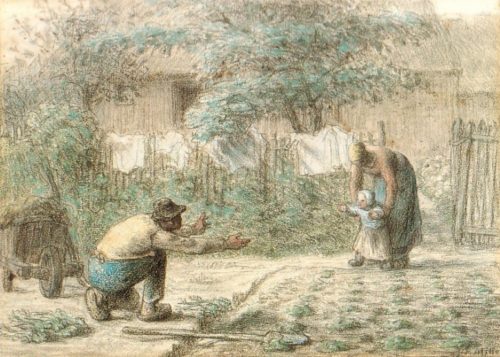So Brianna Randle writes in the Washington Post about her husband Rob’s year-long battle with severe postpartum depression.
Just three days after his son was born, she found her husband on the floor, whispering, “Just tell Tyler… tell him it wasn’t my fault.”
He was suicidal, and for the first time in his life started experiencing panic attacks, severe depression and anxiety.
Over the next year he tried 24 different prescription drugs, he tried therapy, hypnosis. Nothing worked.
Until one day, the cloud started to lift, for no apparent reason.
It’s a riveting read, and yet a common tale — one that unfortunately very few tell.
Postpartum mood disorders affect 25% of men, according to Randle. 25%!
Yet say “postpartum” and “father” in the same sentence and you’ll get laughed out of the summer, backyard party.
After all, women have the hormonal shifts. They’ve got the legit reasons. They’ve got a monopoly on all the partum problems, right?
Well, guess what, guys have significant hormonal shifts too.
Studies show new dads get a bump in estrogen, oxytocin, prolactin and glucocorticoids, and also experience a decrease in testosterone.
But if someone is mocking a dad for being depressed during this time, he’s probably not going to mic-drop them by saying, “Well, dudes, my hormones are changing.”
So he just stays quiet, except not really.
A guy’s anxiety comes out different ways.
As the Wall Street Journal recently noted, anxious men tend to grow irritable, they get all sorts of pains from tense muscles, they can’t sleep, they’re more likely to start abusing drugs.
So that’s what 25% of new dads become, and yet, in public, we’ll probably just continue to complain, chuckling, that there aren’t more diaper changing stations in men’s restrooms to show just how truly chill and how truly much we’ve got this.
[Painting: First Steps, Jean-Francois Millet, 1858]

